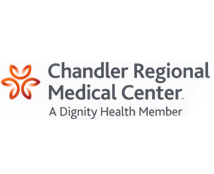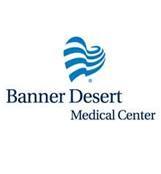Who Should Have an Evaluation with a Phoenix Cardiologist?
Cardiac Evaluation
Coronary heart disease (CHD) and coronary artery disease (CAD) are both major killers of the adult population. One in four people have some form of heart disease, according the American Heart Association. Around 50% of men and 65% of women who die suddenly from heart disease have no previous symptoms.
Who Should Have a Cardiac Evaluation?
Certain people are at risk for heart disease. Men and women with two or more risk factors need to have a cardiac evaluation. These risk factors include:
- High cholesterol levels
- Cigarette smoking
- Overweight or obesity
- High blood pressure
- Diabetes mellitus
- Sedentary lifestyle
- Death of an immediate family member from heart disease
- Men older than 45 years of age
- Women older than 55 years of age
Signs and Symptoms of Heart Disease
- Pressure, discomfort, fullness, or squeezing in the chest
- Pain that goes up to your shoulders, neck, jaw, and/or arms
- Pain that is accompanied by sweating, fainting, dizziness, or difficulty breathing
Diagnostic Testing
Usually, a cardiac evaluation begins with a cardiologist consultation. A cardiologist is trained in both internal medicine and the heart and vascular system. During your cardiac evaluation, the doctor will perform several evaluations, assessments, and tests. These include:
- Comprehensive Physical Examination – The Phoenix cardiologist assesses numerous systems of your body by examining you. During the physical examination, the doctor looks for any underlying cause for your symptoms and checks your heart function. A stethoscope is used to detect murmurs (abnormal heart sounds) that could indicate a narrowed or leaky heart valve and to check for fluid in the lung tissue. The doctor also checks for turbulent blood flow through the arteries in your neck, abdomen, and groin. An ophthalmoscope is used to examine the blood vessels in the back of your eyes that may have suffered damage from longstanding high blood pressure. Additionally, a nurse will check your blood pressure and heart rate.
- Detailed History –The cardiologist in Mesa will take a detailed medical, psychosocial, and family history by asking you certain questions. The history allows the doctor to better understand your risks for heart disease and vascular disorders. The nurse may assist with the history, asking you questions about your symptoms, family, activities, diet, and lifestyle.
- Resting 12-Lead Electrocardiogram – With this test, you lie down and a technician applies electrodes to your chest. These attach to wires and a device that checks the electrical conduction of your heart rhythm. The electrocardiogram is also called an EKG or ECG.
- Oxygen Level – The nurse will use a pulse oximeter to assess your oxygen saturation (O2 Sat). This is done to see if your peripheral tissue, muscles, and internal organs are getting adequate oxygen. Normally, your O2 saturation is above 95%.
- Laboratory Testing – There are numerous blood tests that the doctor will order, including cholesterol levels, anemia screens, liver and kidney function, urine analysis, and general health status screens.
- Inflammatory Markers – Homocysteine and C-Reactive Protein are both special blood test that check for your risk of heart disease. These tests are both simple blood tests that require no special measures.
- CPK Blood Test – The CPK test stands for creatine phosphokinase level. CPK is an enzyme that enters the blood when heart muscle tissue dies. This test is done to assess for cardiac damage from a recent heart attack or other cardiac event.
- Chest X-Ray – With a chest radiograph, the doctor will check the position and size of your heart, look for fluid in your lungs, and assess for overall heart and lung health. A technician will have you stand in a lead-lined room and take several pictures of your chest region. These are developed on special film and stored digitally to be reviewed by a radiologist.
- Echocardiogram – This test is often done to evaluate the size of your heart, how strong it pumps, and to see if the valves are healthy. Also called an echo, the echocardiogram is done by a technician who uses a special probe that is applied to your chest wall. By advanced technology and the use of sound waves, pictures from inside your heart are recorded.
- Holter Monitor – If you have an irregular heartbeat, the doctor will use a Holter monitor to check the heart rhythm at various times of the day. With this test, electrodes connect by wires to a small device. This device records your heart rhythm during your normal activities.
- Stress Test – The stress test is done to check adequate blood flow to the heart during exercise and assess for blockages in the coronary arteries. There are several types of stress testing, such as Adenosine chemical stress test, treadmill stress test, and nuclear stress test.
- Cardiac Catheterization – If any of these tests are positive, the doctor will schedule you for a cardiac catheterization, often called a heart cath. This test is the gold standard for determining coronary artery blockages.
AZ Heart Doctor provides comprehensive noninterventional cardiology services to the greater Phoenix area with offices in Tempe and Mesa AZ. Dr. Yasir Batres is a Double Board Certified cardiologist Phoenix trusts, providing services to a broad range of conditions with services such as event monitoring. Call today (480) 300-4646 for more information and scheduling.












Leave a Reply